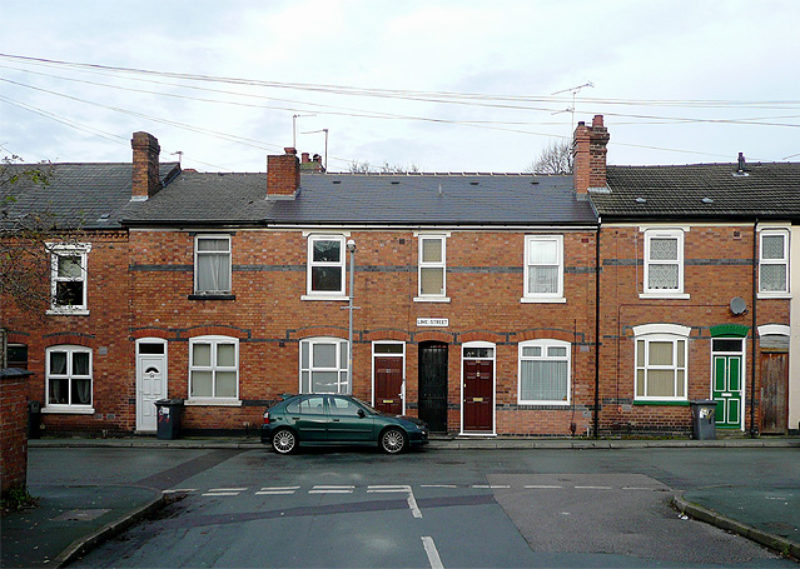Shabana Mahmood MP Labour Member of Parliament for Birmingham Ladywood

Shabana has written to the Secretary of State for Housing, Communities, and Local Government regarding issues in the largely unregulated exempt accommodation sector.
In recent years, there has been a significant and unsustainable increase in exempt accomodation in Birmingham Ladywood.
The rapid growth of the exempt sector has led to high concentrations of vulnerable individuals in shared properties, often with little support given, and no recourse to challenge rogue providers.
In her letter to the Secretary of State, Robert Jenrick MP, Shabana asks the Minister to consider a number of suggestions to improve the sector for tenants.
You can read the letter in full below.
Letter to the Secretary of State
Dear Secretary of State,
Regulation of exempt accommodation
I am writing with regards to the issues which currently occur in the largely unregulated exempt accommodation sector.
In recent years, there has been a significant and unsustainable increase in exempt accommodation units operating in my Birmingham Ladywood constituency. Across Birmingham as a whole, there are now thought to be around 14,000 exempt accommodation properties which are typically small residential units and Houses in Multiple Occupation (HMOs). As you will be aware, these units are not subject to standard HMO licensing requirements or Article 4 planning restrictions. The rapid growth of this type of accommodation has led to a situation where there are now high concentrations of vulnerable individuals living in shared properties, many of whom have competing levels of support. The individuals living in such units also have no recourse to challenge the level of support they receive from their providers.
As you will be aware, there is currently no central regulator for the exempt accommodation sector. The Department for Work and Pensions (DWP) requires providers to meet only a very loose requirement to provide “care, support, and supervision” to its clients. This, of course, allows them to be exempted from the provisions of housing benefit and Universal Credit regulations. Likewise, the Regulator for Social Housing does not have an oversight role in the exempt sector because client placement in these properties is not commissioned. As a consequence, excessive rents are commonly charged which are well in excess of Local Housing Allowance (LHA). This also means that the majority of this type of accommodation does not lie within direct local authority control.
I am deeply concerned that this apparent lack of oversight from both the UK Government and local authorities is putting vulnerable tenants at considerable risk and, in many cases, can exacerbate local antisocial behaviour and community cohesion issues. Given that exempt accommodation is typically used by individuals who have recently been homeless, have recently left the criminal justice system, or have fled abusive relationships, I believe that the current lack of regulatory oversight and accountability is amassing problems which will only worsen as time goes on.
Although exempt accommodation fills a necessary gap in the wider supported housing system, I am sure that you will agree that it is unacceptable that the monitoring of living standards, management, and opportunities afforded to tenants appears to be being left unchecked. From my correspondence with Birmingham City Council, I know that they and other local authorities are also concerned about the business models of many exempt units because it does not centre around the vulnerable people who typically use them. The current model means that landlords could be tempted to exaggerate the vulnerability of their tenants to justify charging higher rents and to maintain their exempt status.
Only this week, a new city-wide Article 4 direction has come into force in Birmingham which will require landlords to seek planning permission to convert small properties into HMOs accommodating between 3 and 6 people. I have long since called for a full landlord licensing regime and this is an important step towards addressing some of the issues that the minority of bad landlords cause. However, exempt accommodation is, by its very nature, exempt from this change. This development alone illustrates what little control local authorities have over such properties.
The trend we are seeing in Birmingham cannot continue and I have no doubt that similar situations will fast emerge in other parts of the country if regulatory control is not increased. In this vein, I would be grateful if you would consider the following:
- Reform the remit of the Regulator for Social Housing to include specific oversight criteria for all types of exempt accommodation settings, guaranteed by a positive duty for regular inspections. This may also require the procedure through which landlords can apply to become a social landlord to be reviewed or strengthened.
- Work with the Secretary of State for Work and Pensions to strengthen the provisions within housing benefit and Universal Credit to allow for greater oversight of the living standards, management, and support available to tenants in such properties.
- Work with local authorities, including Birmingham City Council, to ensure that all forms of supported housing have sufficient regulatory oversight – whether this be at a local or a national level.
I note that in August 2018, MHCLG Ministers affirmed that the government would be working to create a “robust oversight regime” for the supported housing sector “in the coming months”. While I understand that numerous political issues may have slowed this process down over the past two years, I believe that this is an issue which now demands urgent attention. Inaction over the past two years has catalysed this problem further.
I would welcome the opportunity to meet with you via video conferencing to discuss these issues in greater depth.
Thank you for looking into this matter – I look forward to hearing from you.
Yours sincerely,
Shabana Mahmood MP
Birmingham Ladywood
